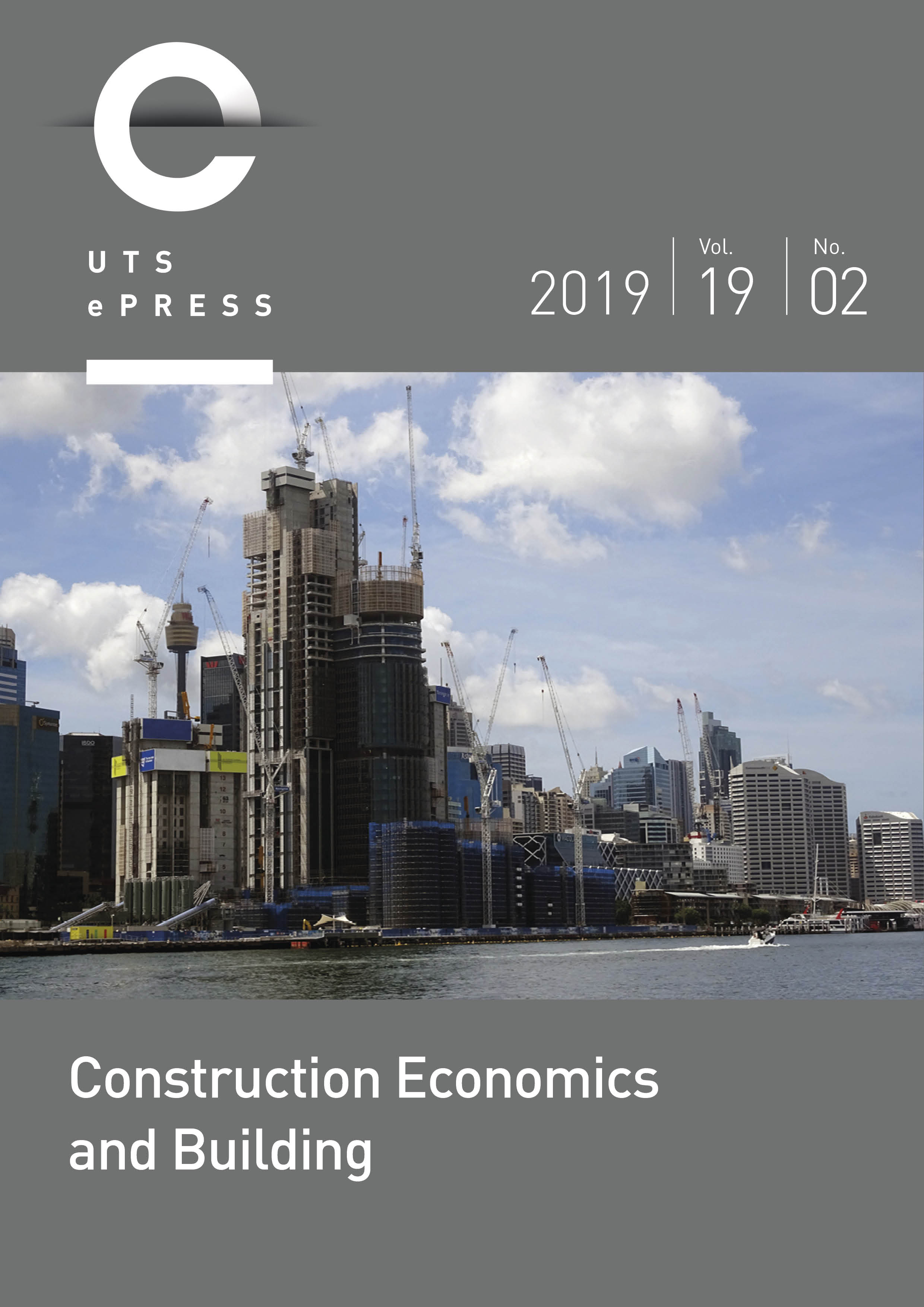Validity and reliability of a transportation infrastructure sustainable performance framework: a study of transport projects in South Africa A Study of Transport Projects in South Africa.
Main Article Content
Abstract
Transportation infrastructure contributes to the development of an economy. However, the performance of such infrastructure is hampered if sustainability elements are not considered at the initiation/conception and operation stages of the projects. The study aimed to validate a structure of transportation project sustainability measures to evaluate projects and ensure continual delivery of intended benefits in the long run. Empirical data were collected using a field questionnaire survey developed from the literature review and a preliminary qualitative inquiry. A total of 132 built environment professionals were included based on purposeful and snowball sampling techniques. A model-generating confirmatory factor analysis was undertaken to validate underlying structures of sustainability measures established from a preliminary common factor analysis. The findings validated that a four-factor structure, with eleven variables, could adequately measure transportation infrastructure project sustainability (PS). The CFA structure achieved construct, convergent and discriminant validity, with fewer variables than were theorised and subsequently established in the common factor analysis. The validated four-factor structure is envisaged to be useful to transportation infrastructure project stakeholders in better decision-making on project selection being cognizant of these factors, which are indicative of the worthwhileness of projects. In addition, monitoring of the projects during the operational stage, based on the identified indicators, could be done with the aim of delivering long-term benefits to generations of users.
Article Details
Section
Authors who publish with this journal agree to the following terms:
a) Authors retain copyright and grant the journal right of first publication with the work simultaneously licensed under a Creative Commons Attribution License that allows others to share and adapt the work with an acknowledgement of the work's authorship and initial publication in this journal.
b) Authors are able to enter into separate, additional contractual arrangements for the non-exclusive distribution of the journal's published version of the work (e.g., post it to an institutional repository or publish it in a book), with an acknowledgement of its initial publication in this journal.
c) Authors are permitted and encouraged to post their work online (e.g., in institutional repositories or on their website) prior to and during the submission process, as it can lead to productive exchanges, as well as earlier and greater citation of published work (See The Open Access Citation Advantage Service). Where authors include such a work in an institutional repository or on their website (ie. a copy of a work which has been published in a UTS ePRESS journal, or a pre-print or post-print version of that work), we request that they include a statement that acknowledges the UTS ePRESS publication including the name of the journal, the volume number and a web-link to the journal item.
d) Authors should be aware that the Creative Commons Attribution (CC-BY) License permits readers to share (copy and redistribute the work in any medium or format) and adapt (remix, transform, and build upon the work) for any purpose, even commercially, provided they also give appropriate credit to the work, provide a link to the license, and indicate if changes were made. They may do these things in any reasonable manner, but not in any way that suggests you or your publisher endorses their use.
